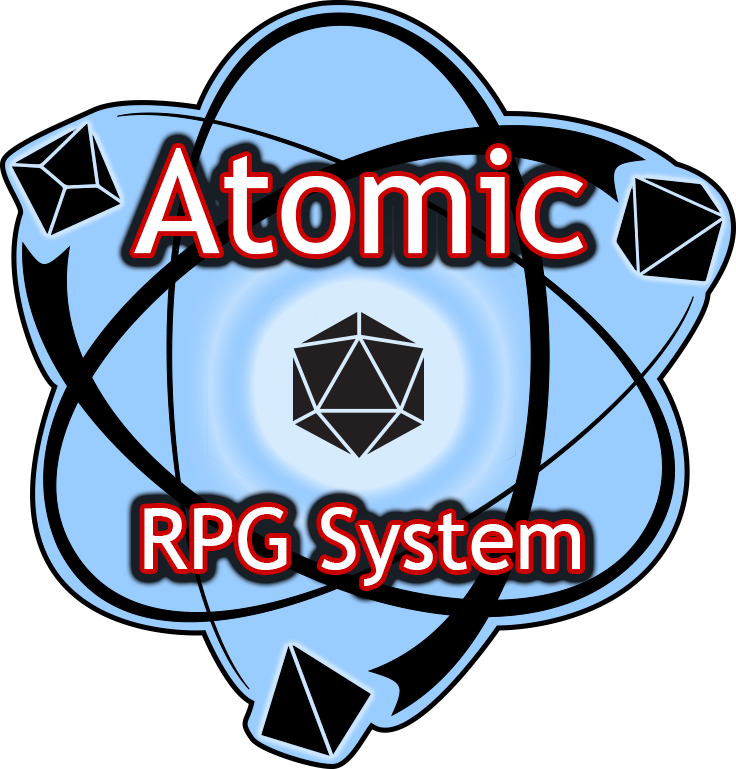Atomic RPG General Questions
At the bare minimum you will need two people. One to be the Game Master, or GM. The other to be a player character, or PC.
For the best experience playing Atomic we recommend 6 total players. One person acting as the GM and 5 other friends who are player characters. This way when there are decisions to be made there is an odd number of players, so votes are simple. Also, this is just about the right amount of people to help and aid each other without the confusion of too many players trying to do to much.
The Atomic RPG System is specifically designed to force inter player dependence. No single player character should be able to tackle all obstacles. Only through teamwork will a Atomic group dominate all situations. Only through teamwork will a Atomic group achieve the optimal role play experience that all gamers hope to achieve.
It can be fun, once in awhile, to have large Atomic gaming sessions of 10 to twelve people. Though we caution against regular gaming groups of this size as it is often far too confusing and takes too long to do much of anything. If you have a group of this size that wants to play Atomic, we suggest splitting it into two separate groups.
First and foremost you are going to need AtomicRPG.com. This website is your portal into all of the rules, mechanics, ideas, and fun for the Atomic RPG System.
Next, you will need a few friends to play the Atomic RPG System with you.
Some pencils and paper to write down all of the important things about your character. You can use some of the more advanced and helpful Atomic RPG System Tools on this AtomicRPG.com.
You may also want to have a set of dice to play Atomic. Dice add a bit of randomness and the excitement of chance to the Atomic RPG System. If you don’t have a set of dice yet you can use the Atomic RPG System Random Die Roller, created specifically for the Atomic RPG System.
That’s all you need to play the Atomic RPG System system!
The Game Master, also known as the GM, is the player in the Atomic RPG System that will be controlling the game and moderating the action for the other players. The GM is tells the story and controls the non player characters during a Atomic RPG System game.
Look into the Game Master section for further details about what role a GM plays in the Atomic RPG System system.
A non player character is any character that is controlled by the Game Master. These range from the characters that the party may interact with to the monsters that they fight.
A player character is the character that you will be controlling in the Atomic RPG System. It is the avatar that you will control during all parts of the game.
A role-playing game (RPG and sometimes roleplaying game) is a game in which players assume the roles of characters in a fictional setting. Players take responsibility for acting out these roles within a narrative, either through literal acting, or through a process of structured decision-making or character development. Actions taken within many games succeed or fail according to a formal system of rules and guidelines such as the Atomic RPG System.
The Atomic RPG System, or Atomic RPG System, is a role play gaming system designed to be adaptable to any genre, gaming style, gaming system, and more. It is meant to be the one and only core mechanic system you and your RPG group use to play any game you would like.
See our detailed description here: What is the Atomic RPG System?
If you have more questions that the FAQ doesn’t answer, feel free to stop by our forums and ask any questions you like there.
The Atomic RPG System is a d20 system. Players will use a twenty sided die (d20) to determine success in things such as attacking and skill checks.
In the Atomic RPG System higher numbers (stats) are better than lower ones. Atomic RPG System character stats will added to modify the d20 roll. Success or failure are determined by a specific number which is set by either the stats of a challenger or by the Game Master(GM).
Rolling the target number or higher equals success. Rolling below the target number is a failure.
